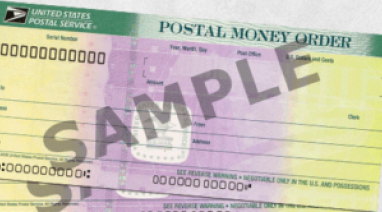Gabapentin Dosage for Anxiety: Understanding the Normal Dosage and How It’s Used Safely
| Gabapentin 100mg 180 tabs | COD / Free shipping | $149 | Order Now |
| Gabapentin 300mg 180 tabs | COD / Free shipping | $159 | Order Now |
| Gabapentin 400mg 180 tabs | COD / Free shipping | $169 | Order Now |
| Gabapentin 600mg 180 tabs | COD / Free shipping | $179 | Order Now |
| Gabapentin 800mg 120 tabs | COD / Free shipping | $165 | Order Now |
| Gabapentin 800mg 180 tabs | COD / Free shipping | $189 | Order Now |
Anxiety doesn’t arrive with a warning, it settles in quietly, yet heavily, until it takes up too much space in your mind. And, for many who’ve tried the typical solutions: therapy, SSRIs, mindfulness apps, the search for peace can feel like reading the same chapter over and over again, hoping for a different ending. That’s where gabapentin dosage for anxiety comes into focus, as a practical option for calming the mind when other approaches fall short.
In this blog, we’ll uncover how gabapentin normal dosage is used to manage anxiety, the science behind its function, how to take it safely, and what you need to know before starting.
What Is Gabapentin, and Why Is It Used for Anxiety?
Originally developed to treat seizures and nerve pain, gabapentin (often sold under brand names like Neurontin) wasn’t designed for anxiety. Yet, as is often the case in medicine, something unexpected happened: people began reporting reduced anxiety symptoms. Clinicians took note. Off-label, it’s now being prescribed more frequently to manage social anxiety disorder, generalized anxiety, and panic symptoms.
Gabapentin works through the GABA system, but it does so differently than benzodiazepines, offering support without the same risks or dependencies. It mimics calming brain activity without the addictive hooks or dangerous withdrawal timeline of many anxiety drugs.
The Science Behind It: How Gabapentin Calms the Brain
Think of your brain as a power grid. Too much voltage surging through can fry the circuits, that’s anxiety. Gabapentin helps to regulate that electrical current, calming overexcited neurons and restoring a sort of neurological balance. It doesn’t sedate; it steadies.
This is why many patients feel relief from racing thoughts, chest tightness, and social overwhelm after beginning treatment, sometimes within hours, sometimes in days.
What’s the Gabapentin Normal Dosage?
Let’s get practical. For nerve pain or seizures, gabapentin normal dosage may range from 900 mg to 1800 mg per day, typically split into three doses. But when it comes to gabapentin dosage for anxiety, things look a bit different.
Here’s what doctors commonly prescribe for anxiety:
- Low starting dose: 100 mg to 300 mg at night
- Titration (increases): Gradually raised every 3 to 5 days
- Range: 300 mg to 900 mg daily
- Number of Dosages: 2 to three
Some may need more, especially in severe cases, but higher doses increase the risk of side effects like drowsiness or dizziness. Your provider will tailor the dose based on your tolerance, weight, and symptom severity.
How Long Does It Take to Work?
Gabapentin doesn’t linger in suspense. Some people notice a difference within 30 minutes to 2 hours after the first dose, especially if anxiety is sharp and situational. For generalized anxiety, it may take a few days of consistent use to feel the full effect.
That said, gabapentin is not a long-term first-line treatment. It’s often used as a transitional aid, helping people through periods of heightened stress, withdrawal, or while titrating onto other medications.
Safety First: How to Use Gabapentin Without Risk
Gabapentin isn’t a one-size-fits-all solution. Like any medication, it demands respect.
To use it safely:
- Follow your doctor’s plan. Don’t modify them on your own.
- Avoid alcohol. The combination can amplify side effects and reduce cognitive function.
- Taper slowly. If you need to stop, your doctor will help you wean off to avoid withdrawal symptoms.
- Report changes. Sudden mood swings, suicidal thoughts, or intense dizziness? Call your provider immediately.
Most people tolerate gabapentin well, but mild side effects like fatigue, dry mouth, or foggy thinking can occur early on.
Who Might Benefit from Gabapentin for Anxiety?
Gabapentin is often considered for:
- Individuals who haven’t responded well to SSRIs or benzodiazepines
- People in recovery from alcohol or substance dependence (gabapentin isn’t habit-forming)
- Patients with comorbid conditions like fibromyalgia, chronic pain, or restless leg syndrome
- Those needing short-term relief before long-term therapies kick in
Still, it’s not ideal for everyone. Pregnant individuals, people with kidney conditions, or those already on multiple CNS depressants may be advised against its use.
Realistic Expectations: Not a Cure, but a Tool
Gabapentin doesn’t “cure” anxiety. What it does is quiet the background noise so you can think, plan, and cope more clearly. It creates space for therapy to work, for habits to shift, and for daily life to feel less like a sprint through chaos.
Conclusion: Considering Gabapentin for Anxiety?
If you’re exploring treatment options and wondering about the gabapentin dosage for anxiety, you’re not alone. Whether you’re looking for immediate relief or a supplementary tool alongside therapy, gabapentin may be worth discussing with your healthcare provider.
When used with care and clarity, it can provide real, measurable relief, without turning down the lights on your life.
Learn more and consult safely through our trusted source.
No. However, tolerance and dependence can develop if misused. Always follow your doctor’s guidance.
It depends on what you’re taking. Gabapentin can interact with other CNS depressants.
Gabapentin can be used for both short- and mid-term anxiety management. For long-term use, regular reviews with your doctor are necessary to assess risks and benefits.
Do not double up. Missing a single dose won’t typically cause problems, but consistency matters.
Yes. Some people explore options like magnesium supplements, CBD, or mindfulness techniques. However, these may not be as immediately effective for severe anxiety symptoms.


